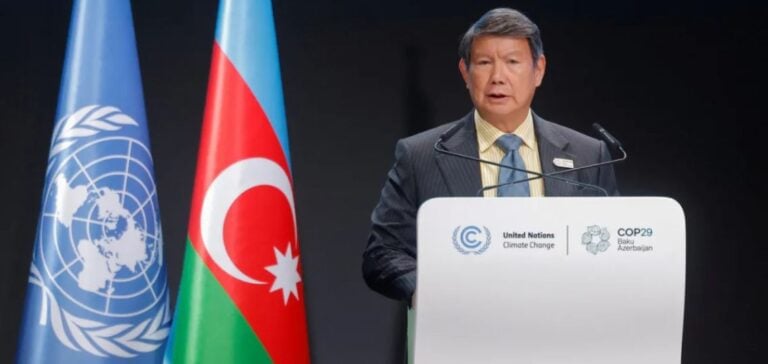Indonesia and Japan have signed a Mutual Recognition Arrangement (MRA) for bilateral carbon trading. This agreement, effective since October 28, was announced during the United Nations Climate Change Conference (COP29) in Azerbaijan, according to a statement from Indonesia’s Ministry of Environment on November 12.
This MRA is the first global model of bilateral collaboration under the framework of Article 6.2 of the Paris Agreement. It aims to align the national carbon credit systems of both countries, including methodologies for calculating emission reductions, monitoring systems, and carbon credit certification. In Indonesia, this process is referred to as Sertifikasi Pengurangan Emisi GRK Indonesia (Greenhouse Gas Emission Reduction Certification).
A framework established since 2021
Carbon trading implementation in Indonesia is based on Presidential Regulation Number 98 of 2021. This regulation introduces the concept of “carbon economic value” and oversees initiatives such as carbon trading to achieve Nationally Determined Contributions (NDCs). Under the MRA, Indonesian carbon credits will be recognized as equivalent to Japan’s, provided they adhere to Indonesian environmental standards.
Transparency and integrity
The agreement emphasizes principles of transparency and consistency in carbon credit transactions. The distribution of generated credits will be determined by mutual agreement between the two governments, who will jointly oversee project implementation.
A strengthened collaboration
Since 2013, Indonesia has collaborated with Japan through the Joint Crediting Mechanism (JCM). However, until now, these projects were not fully registered in Indonesia’s National Registry System. With the MRA’s implementation, all JCM projects must now be completely registered and comply with Indonesia’s greenhouse gas emission reduction certification system.
Inventory of JCM projects
To ensure a smooth transition, Indonesia’s Ministry of Environment, along with the JCM Secretariat, plans to conduct an inventory of existing projects by the end of 2024. This initiative will include analyzing previously generated credits, ongoing projects, and Japan’s future investment plans in Indonesia’s emission reduction projects.






















